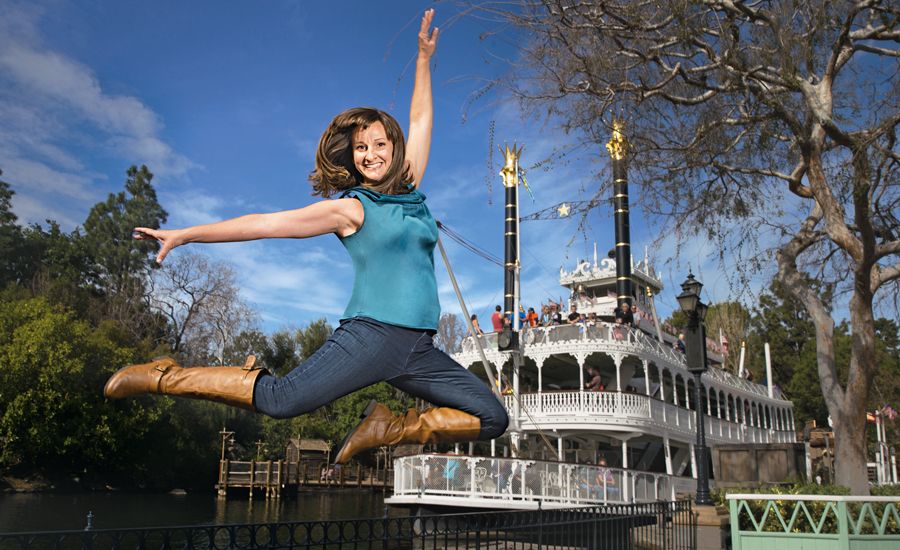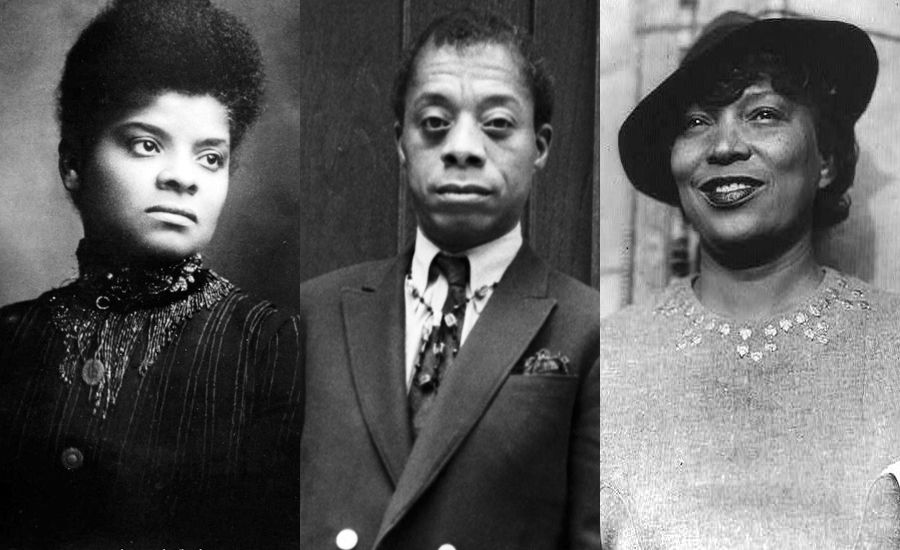It should have been a dream job. I’d been in love with dancing all my life, and here I was, dancing professionally at Disneyland, in one of the most popular shows: the Electrical Parade, which wowed parkgoers every night with brilliantly lit floats.
I’d been given one of the top roles in the parade: standby dancer, called to take any role, always at the last minute. Standby dancers had to be versatile, quick learners. I should have been happy. But worry nagged me every day. Worry that I’d be found out.
A few months after starting as a standby, I was assigned to the parade’s finale, a giant, complex float shaped like a waving American flag that had a team of dancers dressed in patriotic costumes.
We were still backstage, waiting for the floats to move through the gates leading into the park. We’d already started our routine, so the parade would appear fully in motion as it passed through the gates.
I was twirling next to Brenda, one of my friends on the parade team. We stopped to kick. Brenda glanced at me quizzically. “Why are you kicking like that?” she asked.
I looked at my legs. Was I doing something wrong? Already Brenda had spun away. It was just an offhand question. So why did I feel like the world was about to discover my secret?
Because there was a secret about my dancing. I was a fake. Or at least that’s what I feared people might think. I’d never taken professional dance lessons or danced in youth productions or done any of the other things top dancers do to land coveted roles with professional dance troupes.
I’d bluffed my way into roles starting in college (where I majored in film, not dance, because my Christian school didn’t offer a dance major). I had no real training. I was like a football fan who ventures onto the field, gets swept into a game and somehow ends up on the team.
The worst thing that could happen was to be found out. I’d lose my place to one of the countless other dancers who would have grabbed my role in a heartbeat.
Obviously, Brenda had detected some flaw in my kick. I was too untrained even to know what it was. Brenda was a friend. But dance troupes are gossip mills. How long till other dancers started watching for mistakes?
I pictured one of the choreographers waiting for me backstage like the Queen of Hearts in Alice in Wonderland: “Off with her head!” Or, more realistically: “Liz, this role isn’t right for you. We’ll give you a call when we need you again.”
I’d longed to be a dancer since I was a little girl watching music videos and doing Paula Abdul routines on the coffee table. But I was morbidly shy. I refused to take lessons or dance in front of anyone but my family until I was in high school. I learned fast once I worked up my courage to attend a few classes at a studio in my rural California hometown. Still, the hard truth was I was pretty much self-trained.
My brother worked at Disneyland and talked me into trying out when I was in college. To my shock, I got a role. Then, two years later—maybe I panicked at the thought of committing—I made an impulsive decision to move to Hollywood and try my luck in the movie business.
I ended up guarding the backstage door at The Tonight Show, learning just how rude some celebrities and their entourages can be. So I hightailed it back to Disneyland and again landed a role—though this time I failed a few auditions first. From there I worked my way up.
I told myself my zigzag path was a sign God had called me to be a dancer, always nudging me in the right direction whenever I went astray. But my parents were starting to wonder when I was going to get a real job. What if God had called me to be a dancer—and I’d let him down?
What if God had called me to be
|
To my immense relief, the parade ended. “What’s wrong with my kick?” I asked Brenda the instant the gates closed behind the float.
She looked at me like I’d asked what one plus one equals. “Your turnout,” she said.
My turnout? I thought miserably.
Brenda’s leg flew up and she pointed to her foot, which was angled slightly out. “Your foot was straight,” she said. “You’re not turning out.”
Now that I saw, I realized turning out made the entire kick more elegant. But of course I hadn’t known that because it’s the sort of thing you learn in a basic dance class. What other mistakes was I making?
The next day, I practiced my kicks over and over. I got them right. But I couldn’t go back and change my past. I arrived backstage expecting stares.
Instead, everyone was going about their business. No odd looks. No whispering. The schedule was unchanged: “Liz: Electrical Parade, standby.”
I got into costume and lined up next to Brenda. The parade lurched into motion and we began kicking. Was that an encouraging smile on Brenda’s face? Maybe it didn’t matter.
I realized God didn’t care whether I had a polished résumé or a perfect kick. He’d called me to dance. Here, tonight, at this parade now. If I trusted him—really trusted— I could leave my zigzag past and my uncertain future in his loving hands. That, I decided, was the greatest calling of all. The calling of now.






